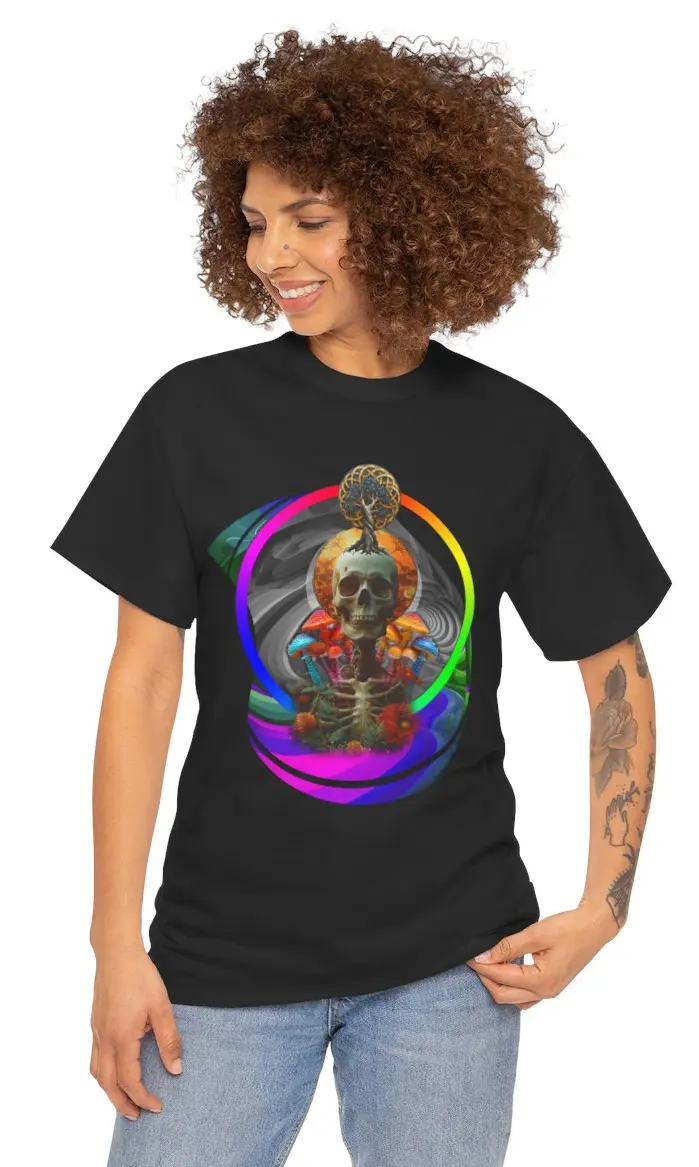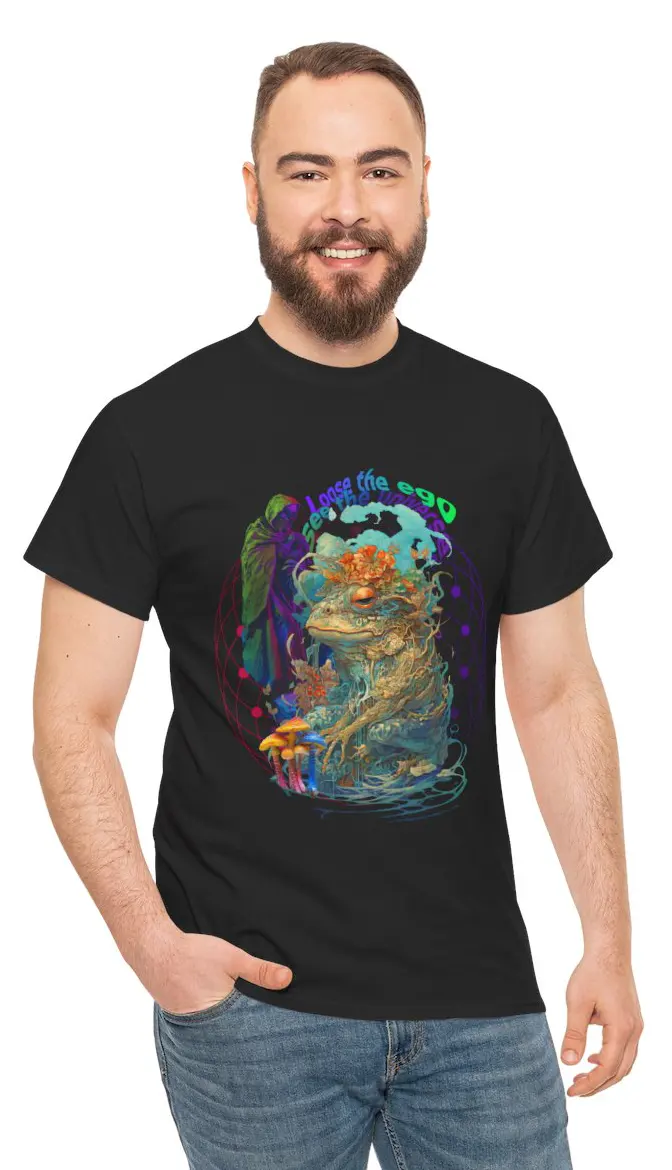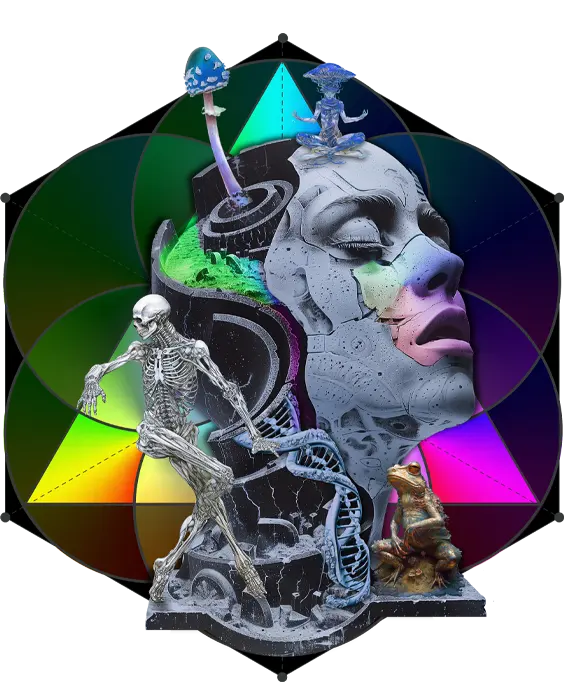In a groundbreaking fusion of biotechnology and culinary innovation, scientists have successfully bred magic mushrooms with potatoes, resulting in what is being dubbed “trippy chips.” This novel creation combines the psychoactive properties of psilocybin mushrooms with the familiar comfort of potatoes, offering a unique and potentially therapeutic snack. This article delves into the science behind this innovation, its potential benefits, and the broader implications for the field of psychedelics.
The Science Behind Trippy Chips
The creation of trippy chips is a testament to the advances in genetic engineering and mycology. Researchers have managed to integrate the psilocybin-producing genes of magic mushrooms into the DNA of potato plants. This genetic modification allows the potatoes to produce psilocybin, the active compound responsible for the psychedelic effects of magic mushrooms.
Genetic Engineering Process
- Gene Identification and Isolation: The first step involved identifying and isolating the genes responsible for psilocybin production in mushrooms, specifically Psilocybe cubensis, a common species of magic mushrooms.
- Gene Insertion: Using advanced techniques like CRISPR-Cas9, scientists inserted these genes into the DNA of potato plants. This process required precise modifications to ensure that the psilocybin genes functioned properly within the potato’s genetic framework.
- Cultivation and Testing: The genetically modified potatoes were cultivated under controlled conditions. Subsequent tests confirmed the presence of psilocybin in the potato tubers, marking a successful fusion of the two organisms.
Potential Benefits of Trippy Chips
The creation of trippy chips opens up several exciting possibilities, particularly in the realms of mental health and therapeutic applications.
Therapeutic Potential
- Depression and Anxiety: Psilocybin has shown promise in treating depression and anxiety, particularly in cases resistant to conventional treatments. The ease of consuming trippy chips could make psilocybin therapy more accessible.
- Post-Traumatic Stress Disorder (PTSD): There is growing evidence that psilocybin can help alleviate symptoms of PTSD by enabling patients to process traumatic experiences more effectively.
- Mental Health Conditions: The potential to address various mental health conditions through a familiar food product could revolutionize treatment paradigms.
Cognitive and Emotional Benefits
- Mood Enhancement: Psilocybin is known for its ability to enhance mood and induce a state of well-being. Regular consumption of trippy chips in controlled doses could offer a natural way to boost mental health.
- Cognitive Function: Preliminary studies suggest that psilocybin can enhance cognitive function and creativity. Integrating psilocybin into everyday foods like chips could provide subtle cognitive benefits without the need for traditional psychedelic sessions.
Safety and Ethical Considerations
While the potential benefits are significant, there are important safety and ethical considerations to address.
Dosage Control
Ensuring consistent and safe dosages in trippy chips is crucial. Overconsumption could lead to intense and potentially distressing psychedelic experiences. Therefore, rigorous quality control and clear labeling are essential.
Legal and Regulatory Issues
Psilocybin remains a controlled substance in many parts of the world. The integration of psilocybin into food products will require careful navigation of legal and regulatory landscapes to ensure compliance and safety.
Ethical Implications
The creation of genetically modified organisms (GMOs) continues to spark ethical debates. Transparency about the genetic modifications and their purposes is vital to maintaining public trust and addressing any concerns.
Broader Implications for Psychedelic Research
The development of trippy chips signifies a broader trend in psychedelic research and its applications. It highlights the potential to integrate psychedelics into everyday life in ways that are safe, controlled, and beneficial.
Integration with Psychedelic-Assisted Therapy
Trippy chips could become a valuable tool in psychedelic-assisted therapy, offering a more palatable and less intimidating option for patients new to psychedelics. They could be used as an adjunct to traditional therapeutic sessions, enhancing the overall therapeutic experience.
Research and Development
The success of trippy chips could spur further research into other potential food-based delivery systems for psychedelics. This could include beverages, desserts, and other familiar food items, broadening the scope of psychedelic therapy.
Conclusion
The creation of trippy chips by breeding magic mushrooms with potatoes represents a fascinating intersection of biotechnology, mycology, and culinary innovation. This breakthrough offers significant potential for therapeutic applications, particularly in treating mental health conditions such as depression, anxiety, and PTSD. However, it also necessitates careful consideration of safety, legal, and ethical issues.
As research continues, trippy chips may pave the way for new, accessible forms of psychedelic therapy, making the benefits of psilocybin more widely available. This innovation underscores the importance of continued exploration and responsible integration of psychedelics into modern medicine and daily life.







